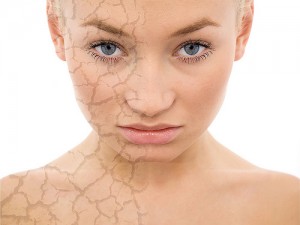 Compromised skin is skin that’s had its outer layer damaged in some way, and can no longer hold onto moisture or protect from outside contaminants like pollution and bacteria as well as it once did.
Compromised skin is skin that’s had its outer layer damaged in some way, and can no longer hold onto moisture or protect from outside contaminants like pollution and bacteria as well as it once did.
This happens in all sorts of skin conditions, from eczema to psoriasis to dermatitis to rosacea, and is also a factor in skin that’s been damaged by chemotherapy and radiation treatments, or by medications.
What I want to warn you about is this: If you have compromised skin of any sort, you are more at risk from exposure to toxic chemicals-not only because they can further irritate and damage your skin, but because they can more easily penetrate skin’s malfunctioning outer layer and get inside your body.
Several studies have confirmed this. For example, researchers found that skin damaged by chemicals in the workplace was more likely to absorb those chemicals. “[T]here are several lines of evidence that reduced integrity of the skin barrier may increase dermal absorption of chemicals in the occupational setting,” the researchers wrote. “[S]ome individuals have an intrinsically affected skin barrier which will facilitate entrance of chemicals into and through the skin making these persons more susceptible for local as well as systemic toxicity.”
Read that again. It says “…more susceptible for local as well as systemic toxicity.” What that means is that not only will your skin suffer from the exposure to the chemicals, but the rest of your body may as well.
I’ve posted several times on this blog about how chemicals in our personal care products can damage our bodies. I’ve talked about how studies have found traces of synthetic fragrances, parabens, and phthalates in the blood samples of teenage girls. I told you about the two environmental advocates who did an experiment on themselves and found that daily exposure to personal care products increased their blood and urine levels of chemicals like BPA, triclosan, and phthalates. I alerted you to the fact that even newborn babies are born with chemical contaminants in their blood.
If all that hasn’t convinced you to start shopping for safer products, I want to add this fact-if you have compromised skin, it’s more likely that whatever chemicals you apply to your body will end up inside you.
That means if you have dermatitis, psoriasis, eczema, inflammation, or even just plain old dry, itchy skin, you’re at an increased risk for toxic exposure. It’s just the way it works.
Your skin is built to protect you, but some days it’s fighting an uphill battle. Even if you don’t have a skin condition, you’re exposed to several chemicals a day that can contribute to barrier breakdown. Even just cleaning the house with your bare hands using chemical cleaners can disrupt the condition of your skin, and make it less likely to protect you from the chemicals you’re exposing it to.
If you have compromised skin, please take the following precautions. (Of course if I were you, I’d take these precautions regardless!)
- Do not expose your skin to harsh chemicals. Wear gloves when you’re housecleaning or gardening or anytime you’re working with toxic substances. Better yet, buy cleaning and gardening products with fewer chemicals and more non-toxic ingredients.
- Shop for your skin-care items from reputable manufacturers that use safe ingredients in their products. Checkout my list of where to find safer products here.
- Use gentler, non-toxic body washes, shampoos, detergents, everything-and definitely buy fragrance-free or look for products naturally scented with essential oils or natural extracts.
- Keep your skin continually moisturized. Compromised skin cannot hold onto moisture as well as healthy skin, yet moisture helps in healing and increases barrier effectiveness, so get used to applying 3-4 times a day. If you need to, wear cotton socks and gloves overnight after you’ve put on lotion or cream.
Do you have compromised skin? Are you more careful with chemical exposure?
Photo courtesy the KarmaLady via Flickr.com.

